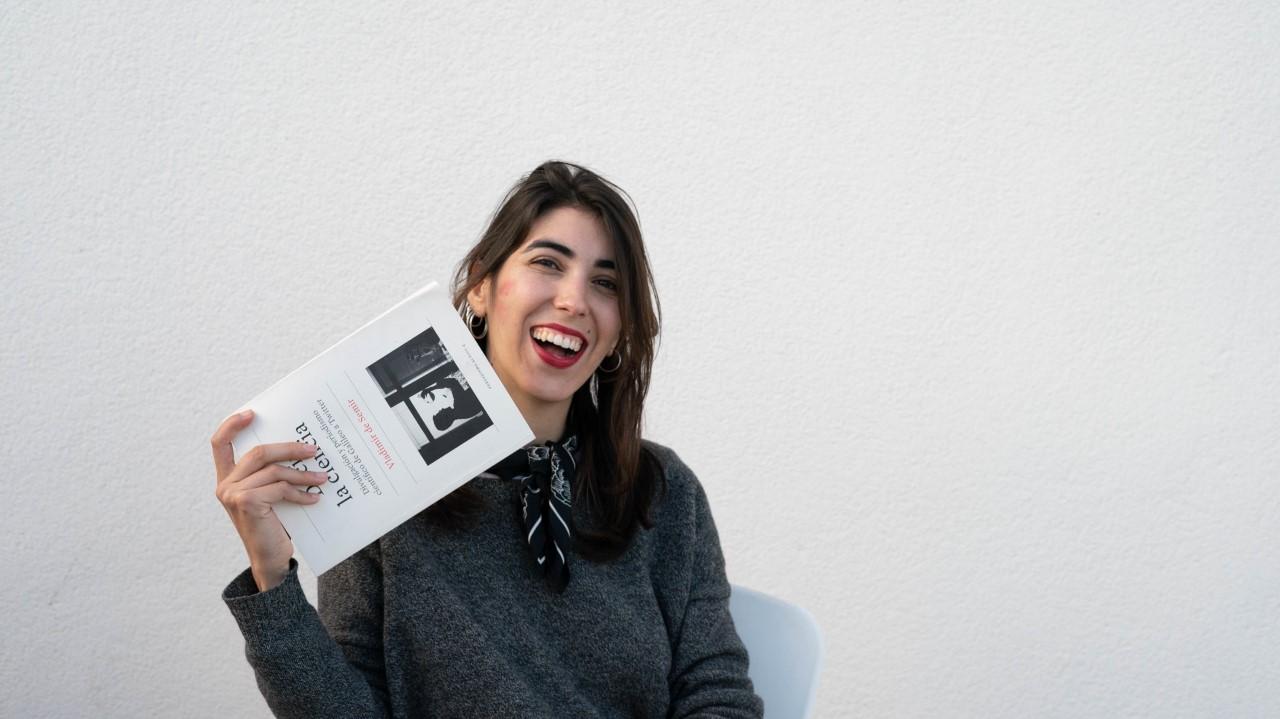Information for:

- Masters
- Postgrad courses
- Courses
- Faculty and research
- About UPF-BSM
"The SDGs are going from being objectives to necessities"
9 Febrero - 2022
Ana Tejedor is the winner of the award for the best Master's Thesis on Planetary Wellbeing with the documentary No sé nada de gaviotas and is a graduate of the Master in Scientific Communication from UPF Barcelona School of Management.
What have you done professionally since you graduated from UPF Barcelona School of Management?
After finishing my master's degree at UPF-BSM I embarked on an adventure with Ruta Inti, a social and cultural program for young people from all over the world. I wanted to test myself, get out of Barcelona and breathe fresh air. Earlier I had spent some time distributing my short film (No sé nada de gaviotas). I am now a freelancer. I dedicate myself to what I like, which is audiovisual production linked to scientific communication. The short film follows its own path and I am looking for how to make a new one and continue learning from the world of communication.
Congratulations on winning the TFM award with your documentary, what does it mean to you?
For me, this award means recognition of the effort and hours dedicated. It has been difficult to get this short documentary off the ground and it would not have been possible without the support of people close to me (Laura Carrau and Maia Grondona, for example) who have accompanied me in the long processes of documentation and creation. I would like that even if the documentary wins this award and my name is the one that signs it, it would also always be kept in mind that an audiovisual work is, as a general rule, a collective creation. I am very grateful.
What's No sé nada de gaviotas about? How was the idea born and how did it develop?
No sé nada de gaviotas is a documentary about the presence of the yellow-legged gull (Laurus michaellis) in the city of Barcelona. The story of the seagull and its relationship with the city is an excuse to talk about global problems that cut across any local problem.
The story of the seagull and its relationship with the city is an excuse to talk about global problems that cut across any local problem.
The idea came from listening to the seagulls in Barceloneta very early in the morning, “is something wrong with them?”, I thought, and started to pull the thread. Quickly, I learned about the BCN-GULLS project and from then on everything was a cause-effect chain that led me to deal with the various problems that are discussed in the documentary.
What did you learn at UPF-BSM that you currently apply to your job?
Being part of the Master of Scientific Communication was crucial to develop this project. Not only did it give me the support I needed to confidently plan interviews and other avenues of investigation, but it also gave me the tools to think of a different research method. I think that was key to presenting the documentary from a broader perspective, which makes it something special.
What is the role of the arts in disseminating the SDGs?
From my point of view, the SDGs are going from being objectives to being necessities. We need as a society to understand that it is not something abstract and that they apply to our day to day. In this sense, I believe that the work of art is the same as that of any other thing: to communicate, share and talk about what affects all of society. It is important to cover all spheres to permeate all fields.
How do you see yourself in a few years?
I would love to continue contributing to scientific communication from the audiovisual. Especially with regard to environmental communication in particular, which I think is the field in which we most need to focus our energies as possible agents of change.